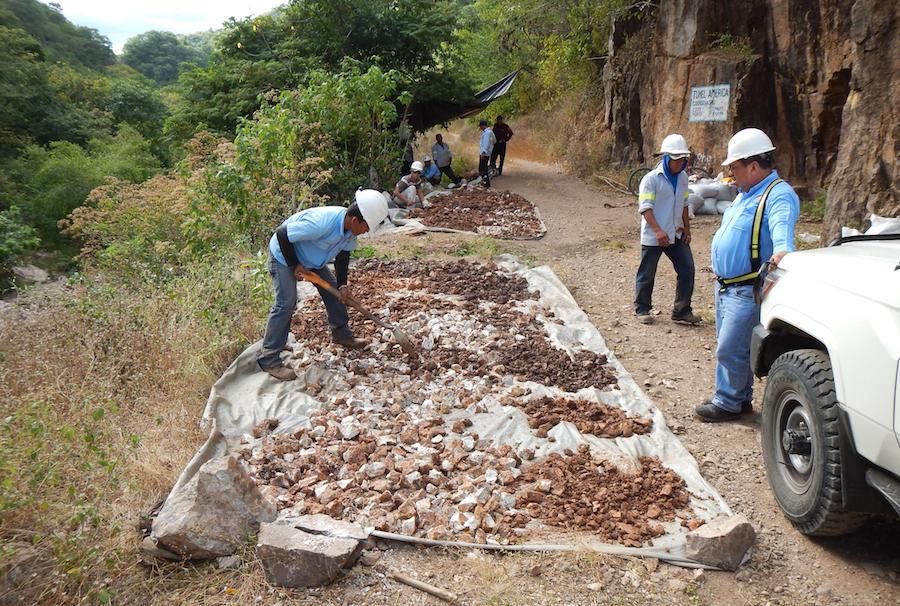
With this model, La India would yield 1,469,000 ounces gold over 12 years of expected mine life. The option would require an initial $160-million investment, with underground development funded through cash flow.
One would see the mine producing 1,469,000 ounces gold over 12 years and the other would create a nine-year operation with total output of 862,000 ounces of gold.
The other scenario consists of a sole open pit mine with development of the core La India pit and satellite pits at Mestiza, America and Central Breccia zones. This alternative would yield about 120,000 ounces of gold per annum of ore over an initial period of six, with total output of 862,000 ounces over nine years of mine life.
“The highlight of the technical study is a post-tax, post upfront capital expenditure NPV of $418 million, with an IRR of 54% and 12 month pay-back period, assuming a $1,700 per oz gold price, with an average annual production of 150,000 oz gold per annum for the initial 9 years of gold production,” chairman and chief executive Mark Child said in a statement.
“The open pit mine schedules have been optimized from designed pits, bringing higher grade gold forward resulting in average annual production of 157,000 oz gold in the first 2 years from open pit material and underground mining funded out of cashflow”, he noted
Trail blazer
Condor Gold staked concessions in Nicaragua, Central America’s largest country, in 2006. Since then, mining has significantly taken off in the country due to the arrival of foreign companies with the cash and expertise to tap into existing reserves.
The government of Nicaragua granted Condor in 2019 the 132.1 km2 Los Cerritos exploration and exploitation concession, which expanded the La India project concession area by 29% to a total of 587.7 km2.
Condor also attracted a partner — Nicaragua Milling. The privately held company, which took a 10.4% stake in the miner in September last year, has operated in the country for two decades.




